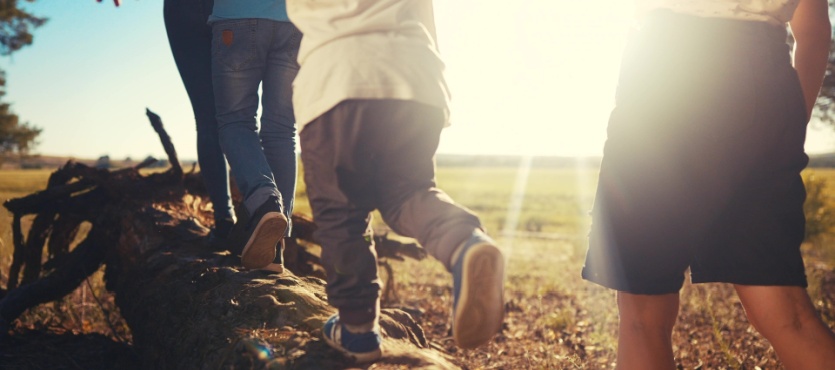In a world increasingly filled with screens and structured schedules, children often have fewer opportunities for unstructured play—especially outdoors. Yet, nature offers one of the richest environments for children to explore, imagine, and learn. Nature-based play isn’t just fun; it nurtures essential skills like creativity and critical thinking that serve children throughout their lives.
Whether building forts from sticks, solving trail-side puzzles, or experimenting with natural materials, kids engage their minds and bodies in ways that traditional indoor play cannot replicate. By encouraging open-ended exploration and curiosity, outdoor play helps children develop into thoughtful, inventive, and resilient problem solvers.
Unstructured Environments Spark Creativity
Unlike toys with fixed rules or screens with programmed outcomes, nature offers infinite possibilities. A pile of rocks becomes a fortress. A fallen branch becomes a magic wand. A patch of dirt becomes a blank canvas. In these natural playgrounds, children are the creators of their own games, stories, and worlds.
This open-ended play stimulates imagination and originality. Kids learn to adapt materials to fit their ideas rather than relying on pre-designed toys or digital prompts. Studies show that children who engage in regular outdoor play score higher on measures of creativity and demonstrate more flexible thinking.
Real-World Problem-Solving in Action
Nature doesn’t offer instructions—and that’s the point. Whether deciding how to cross a stream, build a shelter, or carry out a group scavenger hunt, kids are constantly thinking on their feet. These spontaneous decisions strengthen critical thinking and encourage children to assess risks, test solutions, and learn from outcomes.
Because nature presents ever-changing conditions—weather, terrain, and unexpected discoveries—children must evaluate and adjust their strategies regularly. This process mirrors real-life challenges, giving kids practical experience in managing uncertainty, solving problems, and making informed choices.
Boosting Focus and Cognitive Flexibility
Time spent outdoors, especially in natural settings, has been shown to improve children’s ability to concentrate and stay focused. Unlike the overstimulating nature of many digital environments, time in nature allows the mind to reset.
This mental “reboot” makes it easier for children to return to tasks with renewed focus and clarity. In fact, nature-based play has been linked to improved academic performance, particularly in areas requiring sustained attention and flexible thinking—two core components of creativity and problem-solving.
Encouraging Collaboration and Communication
Many nature-based play scenarios naturally involve groups. Building a fort, planning a nature obstacle course, or navigating a trail are all activities that promote teamwork. In these settings, children practice communication, compromise, and leadership.
Because the environment is ever-changing, there’s rarely one “right” answer. Children must listen to each other’s ideas, adjust their plans, and contribute to shared goals—an excellent exercise in both creativity and collaboration.
Developing Confidence Through Trial and Error
Nature doesn’t come with a “reset” button. If a stick bridge collapses or a leaf boat sinks, children learn to try again. These low-risk failures help build emotional resilience and encourage a growth mindset.
By giving children permission to fail and try new solutions, nature-based play fosters independence and confidence. Kids learn that they are capable of navigating challenges and adapting creatively when things don’t go as planned.
Laying the Foundation for Lifelong Learning
The skills developed through nature-based play extend well beyond childhood. Creativity and critical thinking are two of the most in-demand abilities in the modern workforce—and they begin developing early, through imaginative exploration and problem-solving experiences.
Children who spend time in nature are more likely to grow into curious, adaptable adults who enjoy learning and exploring new ideas. They’re also more inclined to care for the environment, having developed a personal connection with the natural world through their own discoveries and adventures.
Nature as a Classroom for the Imagination
Nature-based play is far more than just a way to pass the time—it’s a powerful catalyst for creativity and critical thinking. By giving children the freedom to explore, invent, and solve problems in an unstructured environment, we provide them with the tools to thrive academically, socially, and emotionally.
At Camp Live Oak, we embrace the power of outdoor exploration to inspire young minds. Our nature-based programs are designed to challenge, engage, and empower children through hands-on learning and imaginative play. To learn more about how your child can benefit from creative outdoor experiences, visit our contact page.

